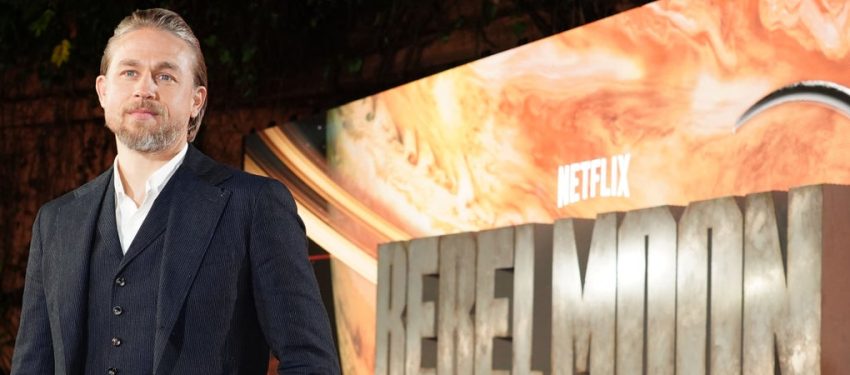MSN.com — British actor Charlie Hunnam said he “begged” the director to let him switch roles after reading for a different character in his Rebel Moon Part One: A Child Of Fire audition.
The Gentleman star, 43, plays pilot and gun for hire Kai, one of the warriors Kora (Sofia Boutella) assembles who share a common need for redemption and risk their lives to defend the people of Veldt – in the film launching on December 15.
However, at the London premiere at the BFI IMAX, Hunnam said he had originally auditioned for a different role.
“I wasn’t reading the script for Kai,” he told the PA news agency.
“I was reading the script for another character and immediately when Kai showed up I was like ‘forget that other geezer, I’m playing Kai’.
“And so I wasn’t sure if it was already cast or if Zack (Snyder) would be up for it.”
He later said “I begged for it actually” referencing the role.
“You know he’s a very interesting character Kai, you never really know what he’s about, my sense is he’s very sincere about everything,” Hunnam said.
“He’s got a lot of different faces and actually all of them are true, he’s kind of conflicted, he’s definitely a naughty boy and he knows it, he’s trying to do well in the world.”
Charlie was a guest on the Virgin Radio Breakfast Show where he spoke with host Chris Evans on December 7th, 2023. In this captivating conversation, Charlie unveils his upcoming projects, including his latest Netflix film and a new Sons of Anarchy series set to premiere in 2024.
As Sons of Anarchy fans eagerly await the return of the biker drama, Charlie teases what’s to come in the new series, hinting at the evolution of the characters and the exploration of new themes. He also reflects on the legacy of the original show and the enduring impact it has had on television and pop culture.
Charlie joined his Rebel Moon castmates as they began their press tour on December 1st at the popular Comic Con Experience 2023 event in São Paulo, Brazil. They along with creator Zack Snyder discussed the film with press and content creators while later surprising the attendees with the first exclusive screening of Rebel Moon – Part One: A Child of Fire.




Most notably was that during a sit down interview that took place at the event Charlie could been seen taking off the soccer jersey he was wearing, kissing it and throwing it to a fan in the crowd who was in tears as Charlie also blew her a kiss before leaving the stage.
Charlie Hunnam took his soccer jersey off, kissed it and threw it to a fan. He's the best. ?
? IG: netflixbrasil pic.twitter.com/u5Txo9DFTR
— Charlie Hunnam Fans (@CHunnamFAN) December 1, 2023
You can find high quality photos from the event in the gallery. And be sure to follow Charlie Hunnam Fan on X/Twitter for even more photos and coverage during the Rebel Moon press tour.
I know it’s been a while since I properly updated the site but I felt it was time to get some new updates uploaded. Which you’ll see below includes high quality production stills and promotional artwork from the upcoming Rebel Moon – Part One: A Child of Fire including high resolution screen captures from the behind the scenes and official trailer videos to the gallery.
Are you excited to see Charlie in Rebel Moon? Let me know below. 🙂












Rebel Moon – Part One: A Child of Fire (2023) > Production Stills
Rebel Moon – Part One: A Child of Fire (2023) > Behind The Scenes – Screen Captures
Rebel Moon – Part One: A Child of Fire (2023) > Trailer #01 – Screen Captures
















